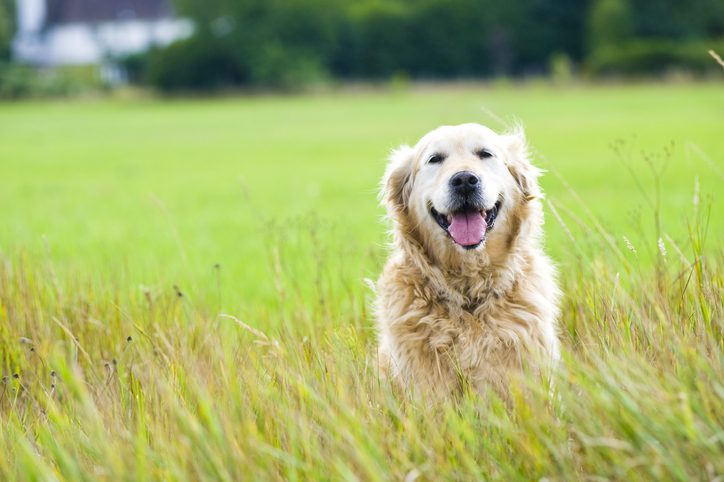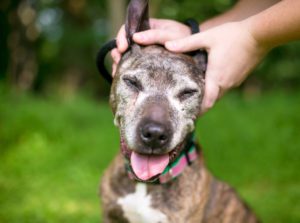How to Tell if Your Dog is a Senior in Limerick, PA
Aging in pets can be a little confusing from a human perspective. We all know that they age faster than humans, but it can be tough to know when your dog finally reaches the age that is considered to be senior. For some dogs, age is just a number, and they seem the same as they always have, even as they get older. For other dogs, the aging process can be obvious.
If you are not sure at what age your dog is a senior dog, we will discuss this. Some of the answers to that question are related to breeding characteristics and unique dog aging. It is worth knowing if your dog counts as a senior dog, and many people want to be sure that their old dog is getting the senior care they need when they get to this age.
If you are ready to learn more about how to tell if your dog is a senior, you need to keep reading!

Small Dogs and Big Dogs Are Seniors at Different Ages
If you have a small dog, the general rule of thumb is that your dog is a senior dog at eleven years of age. If you have a large breed dog, the general rule is that your dog is a senior dog at eight. Giant breeds are considered senior dogs at age seven.
Dog Size
The size of the dog matters because giant and large dogs experience more trouble with joints, arthritis, and heart issues. The strain on a large dog’s body is more significant, and these dogs age faster than small dogs due to this fact. This can be a tough fact to face if you have a dog like a Great Dane or a Mastiff. You might enjoy twenty years with a Chihuahua, but a Great Dane is quite old at seven in most cases.
Each Dog is Different
The difference between breeds and sizes of dogs can lead to the consideration of senior dog status being a bit individual as well. Some dogs that should be senior at age seven will seem young and healthy for many years past this milestone. Some small dogs can age quite rapidly as well and seem much older than their years at eight or nine.
Signs That Your Dog is Aging
If you have a dog that is near the senior dog age, you might be wondering how to tell if they are aging. Being aware of the signs that your dog is getting older can help you to stay on top of potential issues with their health that can be prevented. You might also want to adjust the activities that you are doing with your pet if you think they are getting older suddenly.

Cloudy Eyes
Cloudy eyes can indicate that your dog is getting cataracts. These defects in the lenses of the eyes can eventually lead to blindness. Your dog might not be experiencing this degree of the condition yet, but when you see cloudiness in your dog’s eyes, you might want to make sure you turn the lights on before they go up the stairs and that you throw the ball more gently for them.
Bad Breath
Bad breath can indicate that your dog’s teeth are starting to go bad. You can take your dog to the veterinarian for a dental exam and cleaning to help their aging teeth more comfortable. Bad teeth can be pulled, and your dog can get started on a dental care routine. Your vet should also run a blood panel to make sure that your dog does not have a blood infection from their dental condition.
Moving Slowly or Painfully
Dogs almost always get arthritis as they age, and there are some things that you can do to attend to their failing joints. There are medications and supplements that your dog can take to help with the pain and damage to the joints that are related to arthritis. You can also modify their exercise to be less strenuous and make sure that your dog has a nice, soft bed to sleep on each night.
Lumps and Bumps
Dogs are prone to small, fatty tumors that are benign. If the lump that you have noticed on your senior dog seems to be growing rapidly, you will want to take them to the vet to have it examined. Most of these lumps and bumps are not a reason for major concern, but you should keep track of their size by palpating them once a week or so.
Weight Loss or Gain
Dogs can gain or lose weight as they age. An older dog’s metabolism can get a little out of sync, and other underlying health conditions can lead to these issues as well. You can change your dog’s food to senior dog food and take your dog to the vet to make sure there is nothing more serious going on.
Caring for a Senior Dog Can be Easy
Senior dog care is better than ever these days. There are so many ways to help your senior dog feel better and more comfortable every day. Keeping your older dog moving, active and engaged with life is easier than ever. Do not feel bad for your aging dog! They still want to play and be included in your activities. You might just have to modify what kinds of activities they do with you and your family.
The definition of a senior dog might not be accurate for your dog’s unique situation. You can keep your eye out for signs of aging so that you can take care of their needs even if they are not old enough to be considered a senior dog. Each dog’s aging experience is unique, and you will want to make sure that you are meeting your dog’s specific needs with care. Age can be just a number, but in the case of dogs, knowing if your dog is a senior dog is important.
Call Limerick Veterinary Hospital at (610) 489-2848 or book an appointment online to talk with a vet about your dog’s care and health as they age.
